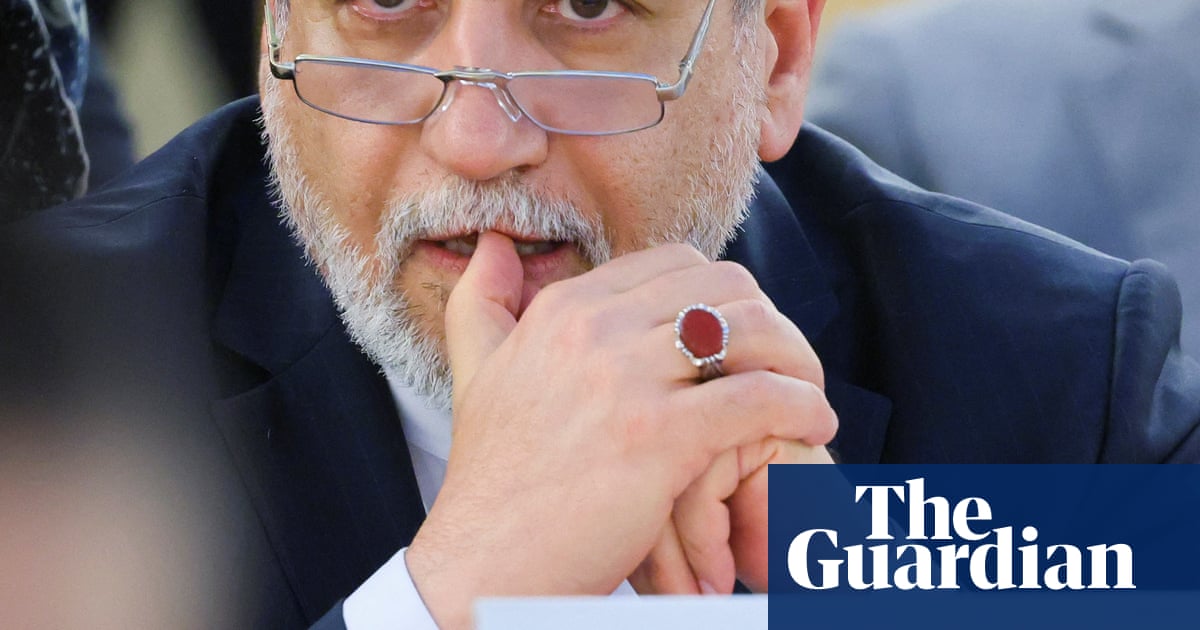Iran’s foreign minister Abbas Araghchi has said that his country is only ready for more diplomacy with the US if Israel’s war on his country is brought to an end “and the aggressor is held accountable for the crimes he committed”.
After several hours of talks with European foreign ministers in Geneva on Friday, there was no sign of a diplomatic breakthrough – or a resumption of negotiations with the US.
Araghchi said: “Iran is ready to consider diplomacy once again and once the aggression is stopped and the aggressor is held accountable for the crimes committed. We support the continuation of discussion with [Britain, France, Germany and the EU] and express our readiness to meet again in the near future.”
Araghchi said he was willing to continue talks with his European counterparts since they have not supported Israel’s attacks directly. But he said Iran was “seriously concerned over the failure of the three countries to condemn Israel’s act of aggression” and would continue to exercise its right to “legitimite defence”.
He also said Iran’s capabilities, including its missile capabilities, are non-negotiable, and could not form part of the talks, a rebuff to the French president, Emmanuel Macron,who in an earlier statement said they should be included in the talks.
With Israelidiplomats and military commanders warning of a “prolonged war,”the route to direct talks between the US and Iran remains blocked, leaving the European countries as intermediaries.
After Friday’s talks between Araghchi and his British, French, German counterparts, the UK foreign secretary, David Lammy, said: “This is a perilous moment, and it is hugely important that we don’t see regional escalation of this conflict.”
The French foreign minister, Jean-Noël Barrot, said there “can be no definitive solution through military means to the Iran nuclear problem. Military operations can delay it but they cannot eliminate it”.
The talks are being held against the backdrop of Donald Trump’s threat that the US could launch its own military assault on Iran within a fortnight – a step that would probably turn the already bloody war into a full-scale regional conflagration.
European diplomats said they came to talks to deliver a tough message from the US secretary of state, Marco Rubio, and US special envoy Steve Witkoff: that the threat of US military action is real but that a “diplomatic pathway remains open”.
But without US-Iran direct talks it is hard to see how an agreement can be reached to curtail Iran’s nuclear programme in a way that satisfies the US headline demand that Iran must never have a nuclear bomb.
Late on Friday, Trump suggested that European efforts would not be enough to bring any resolution, telling reporters: “Iran doesn’t want to speak to Europe. They want to speak to us. Europe is not going to be able to help in this.”
The European ministers said they had expressed their longstanding concerns about Iran’s expansion of its nuclear programme “which has no credible civilian purpose and is in violation of almost all provisions in the nuclear deal agreed in 2015”.
The EU’s foreign policy chief, Kaja Kallas, said: “Today the regional escalation benefits no one. We must keep the discussions open.”
Earlier on Friday, Macron said that the European offer to end Israel’s war would include an Iranian move to zero uranium enrichment, restrictions on its ballistic missile programme and an end to Tehran’s funding of terrorist groups.
The proposals were surprisingly broad, spanning a range of complex issues beyond Iran’s disputed nuclear programme, and appeared likely to complicate any solution unless an interim agreement can be agreed.
One proposal recently aired is for Iran to suspend uranium enrichment for the duration of Donald Trump’s US presidency. The concept of uranium enrichment being overseen by aconsortium of Middle East countries– including Iran, Saudi Arabia and the United Arab Emirates – remains on the table.
Macron, already accused by Trump of publicity-seeking this week, set out a daunting agenda. “It’s absolutely essential to prioritise a return to substantial negotiations, including nuclear negotiations to move towards zero [uranium] enrichment, ballistic negotiations to limit Iran’s activities and capabilities, and the financing of all terrorist groups and destabilisation of the region that Iran has been carrying out for several years,” he said.
In the previous five rounds of talks, the US insisted that Iran end its entire domestic uranium enrichment programme, but said it would allow Iran to retain a civil nuclear programme, including by importing enriched uranium from a multinational consortium.
Iran claims that as a signatory to the nuclear non-proliferation treaty, it has an absolute legal right to enrich uranium, a position neither the European or American powers have ever endorsed. In the past, European negotiators have proved more adept than their US partners in finding compromises, including the temporary suspension of domestic enrichment, a principle Tehran reluctantly endorsed in 2003-4.
